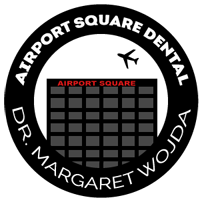Preventive dentistry emphasizes the seriousness of continuing daily hygiene procedures and practices to stop tooth decay and gum disease. By implementing effective preventative dentistry at-home oral care by patients with chair side treatments and counselling by dental professionals. Teeth are stay healthy and gums happy with preventative dentistry.
The American Dental Organization (ADA) recommends a minimum of two dental visits annually for professional cleaning and management of any developing conditions. Adhering to this advice can help your dentist stop gum disease in its earliest stages, defending your smile and reducing your cost.
Early Prevention
Begin daily tooth cleaning as quickly as your child’s first tooth erupts. Visit a pediatric dentist when the first tooth erupts, or no later than twelve months of age. This early introduction to the dentist will also help to establish all-embracing oral health prevention programmed for your child.
Preventive Dentistry Systems
Preventive oral care systems include several in-office and home care activities, including:
At-home oral hygiene: The most vital prevention technique is brushing and flossing at least twice a day (or after every meal) to remove dental plaque, a film-like coating that forms on your teeth. If not removed, plaque can build up and produce dental tartar, a hardened, sticky substance with acid-producing bacteria that cause tooth rot and facilitates gum disease.
Fluoride use: Fluoride strengthens teeth and deters tooth decay. Fluoride treatments are supplied in dental offices, and dentists recommend using fluoride toothpastes and mouth rinses at home. Public water fluoridation ranked as amongst the Twentieth century’s ten great public health achievements provides an important provider of fluoride.
Diet: A well balanced diet is a dental health necessary. Foods with sugars and carbs feed the bacteria that produce tooth plaque, while diets poor in calcium raise your chances of developing gum (periodontal) disease and jaw deterioration.
Regular Dental Visits: Since most dental conditions are painless at first, if you do not regularly visit your dentist, you may not be conscious of dental issues until they cause important damage. For best results, schedule regular dental check-ups every 6 months; more often if you’re at more serious risk for oral illnesses. Your dentist should also perform oral cancer screenings to test for signs of unnatural tissues. Especially for children, checking oral development and growth (including an assessment for caries development) should be part of dental evaluations.
Dental cleanings and screenings: A dental cleaning is recommended every 6 months to remove teeth plaque and stains you’re unable to remove yourself, as well as to test for signs of tooth decay.
X-rays: X-rays enable dentists to look for signs of dental problems that are not visible to the naked eye, for example cavities between teeth and problems below the gum line.
Mouth guards: Mouth guards especially a custom made mouth guard prescribed by your dentist to offer a better fit can be worn during sports activities to protect against broken teeth. Mouth guards
also are used to treat teeth grinding (bruxism), which can wear down teeth and make a contribution to tempro-mandibular joint (TMJ) disorder.
Orthodontics: A bad bite (malocclusion) can damage eating and talking, and crooked teeth are hard to keep in top condition. Correcting an improper bite with orthodontics that may include the use of dental braces or clear teeth aligners (invisible braces), such as Invisalign or Invisalign Teenager, limits the possibility of future dental issues.
Sealants: Sealants are thin composite coatings placed on the chewing surfaces of back permanent teeth to protect your child from tooth decay.
Avoid Drinking Alcohol and Smoking: Smoking, chewing tobacco and alcohol consumption can negatively affect your oral health. Apart from dry mouth, tooth darkening and plaque buildup, smoking causes gum disease, tooth loss and even oral cancer.
Oral health management: Consistent dental care for persistent dental illnesses / conditions is essential for arresting or reversing their dangerous effects.
Patient education: Patients who understand the outcome of poor dental health are likelier to see their dentist for preventive dentistry treatments. Impressing excellent oral hygiene habits noticeably helps ensure a life of dental health.
